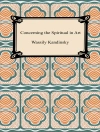The past twenty years have seen major changes in the ways that television formats and programming are developed and replicated internationally for different markets – with locally focused repackagings of hit reality shows leading the way. But in a sense, that’s not new: TV formats have been being exported for decades, with the approach and methods changing along with changes in broadcast technology, markets, government involvement and audience interest. This book brings together scholars of TV formats from around the world to analyse and discuss those changes and offer an up-to the-minute analysis of the current state of TV formats and their use and adaptation worldwide.
Publication Forum (Finland) lists this book as a Level 2 publication, where ‘the highest-level publications are directed as a result of extensive competition and demanding peer-review’. For Intellect’s full listings in this catalogue, please click
here.
Inhaltsverzeichnis
Acknowledgements
Foreword
Toby Miller
Introduction: A Changing Format Mosaic
Karina Aveyard, Pia Majbritt Jensen and Albert Moran
Part 1: Overviews
Chapter 1: Television Format as a Transnational Production Model
Mats Nylund
Chapter 2: The Hybrid Status of Global Television Formats
Claudio Coletta
Chapter 3: Formatting Reality: On Reality Television as a Format, a Genre and a Meta-Genre
Daniel Biltereyst and Lennart Soberon
Chapter 4: Seventy Years in the Making: The Advent of the Transnational Television Format Trading System
Jean K. Chalaby
Part 2: History
Chapter 5: Medea’s Children: The Italian Version of The War of the Worlds
Milly Buonanno
Chapter 6: Cultural Negotiation in an Early Programme Format: The Finnish Adaptation of Romper Room
Heidi Keinonen
Chapter 7: Song Contests in Europe during the Cold War
Yulia Yurtaeva and Lothar Mikos
Chapter 8: “Do It, but Do It Dancing!”: Television and Format Adaptations in Colombia in the 1980s and Early 1990s
Hernan David Espinosa‑Medina and Enrique Uribe‑Jongbloed
Part 3: Industry Players, Big and Small
Chapter 9: From Marginal Trader to Corporate Giant: The Emergence of Fremantle Media
Albert Moran and Karina Aveyard
Chapter 10: Formats and Localization in the Children’s Audiovisual Sector
Jeanette Steemers
Chapter 11: Wallander at the BBC: Trading Fiction Formats and Producing Culture for UK Public Service Broadcasting in the Contemporary Age
Janet Mc Cabe
Chapter 12: Television Formats as Media Ritual Work Practices: Discourses of Freedom, Nationalism and Good Neighbours
Tiina Räisä
Part 4: Territories and Markets
Chapter 13: The Social Contexts of Format Adaptation: Remaking Formats to Fit in China
Michael Keane and Coco Ma
Chapter 14: The Political Economy of Television Formats in Africa: The Case of Big Brother and Idols
Martin Nkosi Ndlela
Chapter 15: Global Reality Television and the Concept of Recursion: Idols in African Contexts
Tess Conner
Chapter 16: Decentring Innovation: The Israeli Television Industry and the Format-driven Transnational Turn in Content Development
Sharon Shahaf
Part 5: Producers and Audiences
Chapter 17: Take a Look at the Lawman: Interrogating Critical Responses to the US Version of Life on Mars
Christopher Hogg
Chapter 18: Sense of Place: Producers and Audiences of International Drama Format at The Bridge
Annette Hill
Chapter 19: The Duality of Banal Transnationalism and Banal Nationalism: Television Audiences and the Musical Talent Competition Genre
Andrea Esser, Pia Majbritt Jensen, Heidi Keinonen and Anna Maria Lemor
Chapter 20: The Voice of Queer Italy: The Politics of the the Representation of GLBTQI (Gay, Lesbian, Bisexual, Transgender, Queer and Intersexual) Characters in Italian Talent Shows and Their Reception in Online Discussions
Elisa Giomi and Marta Perrotta
About the Contributors
Index
Über den Autor
Karina Aveyard is a lecturer in the School of Film, Television and Media at the University of East Anglia. Her essays have been published in Media International Australia, Participations and Studies in Australasian Cinema, and she is co-editor of a forthcoming collection titled Watching Films: New Perspectives on Movie-Going, Exhibition and Reception (Intellect Books, 2013) Karina’s research interests include rural and community cinemas, exhibition and distribution and Australian films.












